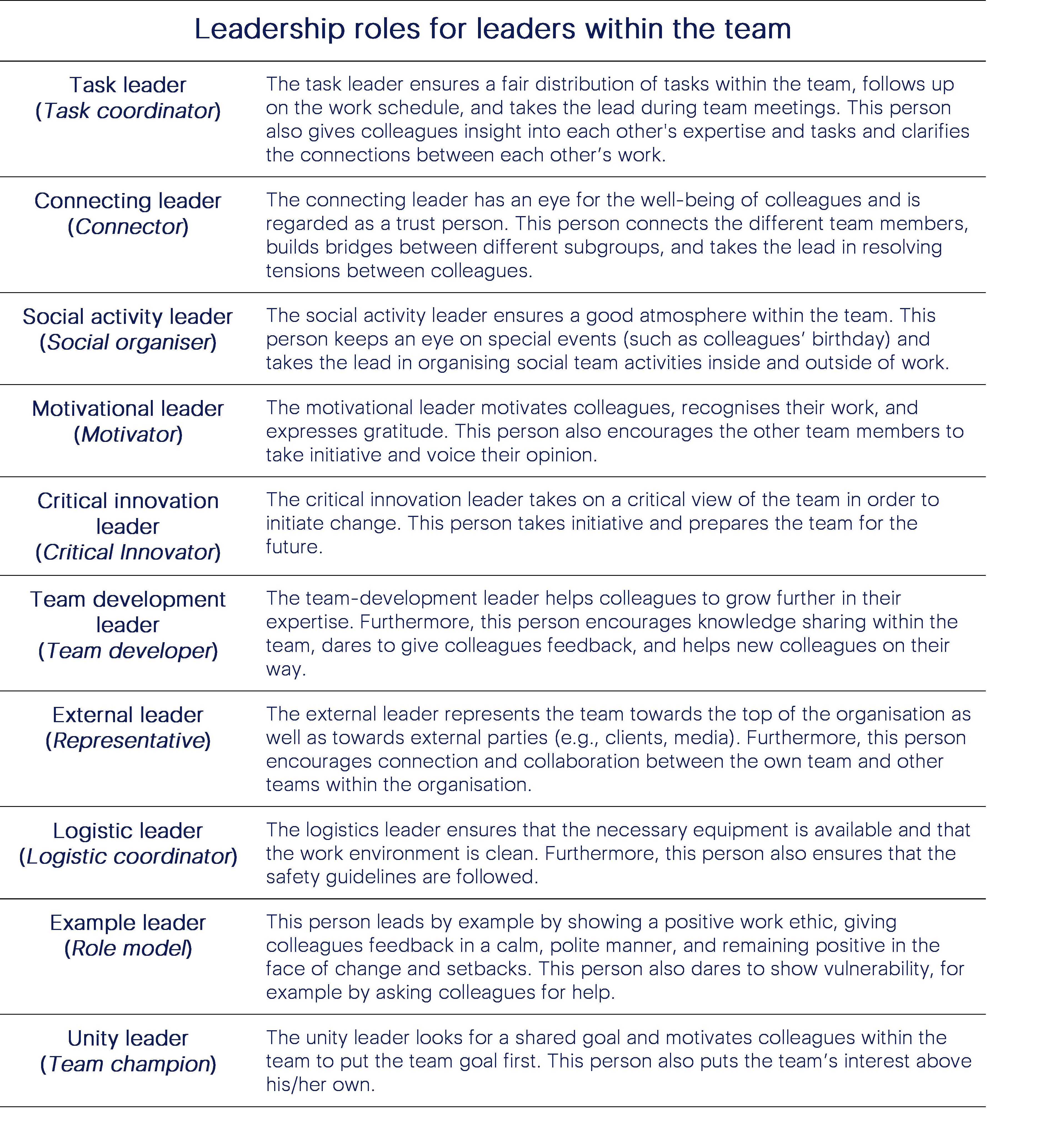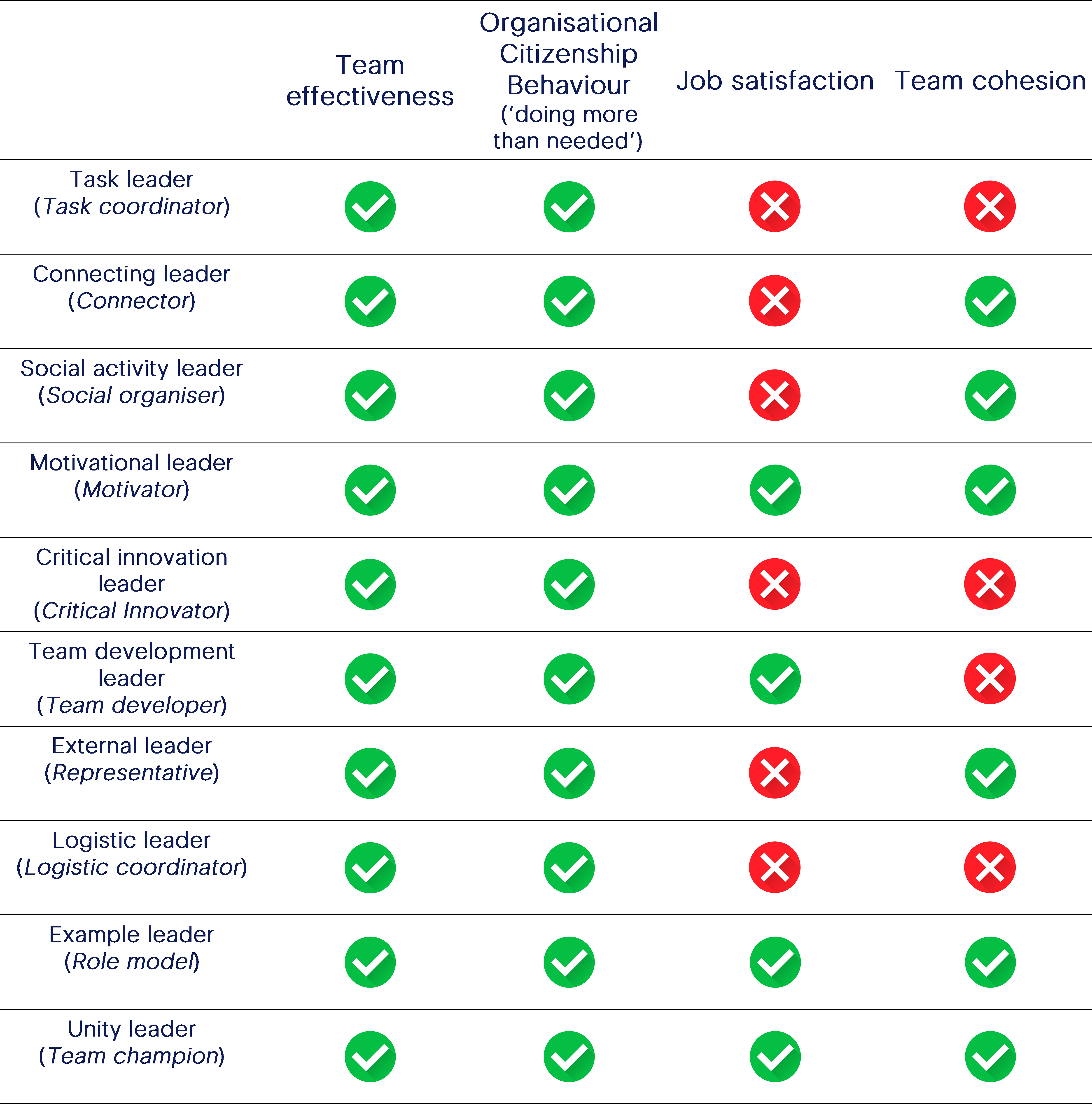Leadership roles tailored to peer leaders in organisations
The roles used in the first research project were based on the four peer leadership roles in sport teams. Although we found positive evidence for the importance of these leadership roles in organisations, the specificity of an organisation makes it likely that important organisation-specific roles are still missing.
Therefore, we adopted the functional leadership theory in this project to identify a set of organisation-specific leadership roles bottom-up. More specifically, this research project entailed three studies:
- Study 1
- Method: A qualitative study including interviews with 35 employees.
- Goal: To identify leadership behaviours of peer leaders in organisational teams.
- Result: In total, 368 peer leadership behaviours were reported, which could content-wise be ensembled into 38 relevant leadership behaviours.
- Study 2
- Method: A qualitative study with 3 expert panels (12 participants in total).
- Goal: To bring together the 38 leadership behaviours from Study 1 into coherent leadership roles.
- Result: A list of 10 leadership roles, specifically for peer leaders. Below, you can find the peer leadership roles with their definition, providing more clarity about the specific content of the expected leadership behaviour. You can also find an alternative name without the word leader.
Below, you can find the peer leadership roles along with their definitions. These definitions provide clarity on the content of the expected peer leadership behaviours. You can also find an alternate naming option without the word "leader".

Note: We’ve chosen for a maximal differentiation between the leadership roles to enable us to study the impact of each specific leadership behaviour in study 3. Follow-up research should indicate if different leadership roles are consistently occupied by a single person and can therefore be merged into one overarching leadership role.
Do these conclusions inspire you to find out more and to start harnessing the leadership potential of your team members? In that case, read this page to find out how we can support you in this journey.
- The scientific article on Study 1 is currently still in the review process.
Edelmann, C.M., Boen, F., Stouten, J., Vande Broek, G., & Fransen, K. Identifying Leadership Roles of Formal and Peer Leaders in Organisational Teams: A Comprehensive Analysis Based on Qualitative Interviews and Focus Groups. Currently under review.
- The scientific article on Study 2 has been published, and you can read it in full via the link below.

